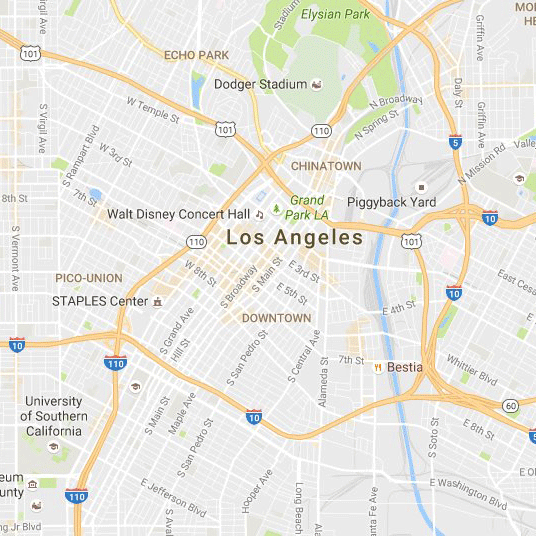At exactly 7:50 in the morning, the shrill sound of the school bell is heard up and down the neighboring blocks. Parents and children, many who are quickly conversing in Spanish, kiss each other goodbye as they part ways. It is time for Leo Politi Elementary School to start its day.

Located in the northwest corner of Pico Union, this public school opened in 1990 to serve a largely Latino student body. Today, according to the Los Angeles Unified School District Board of Education's 2015-2016 Student Discipline Data Records, 94.4 percent of Leo Politi's 736 students identify as Latino. At the same rate, 60 percent are English learners, meaning their first language is Spanish.
These demographics accurately reflect the composition of Pico Union, where 85.4 percent of its 44,664-person population is Latino. According to the LAUSD 2015-2015 Report Card, 100 percent of the school's families are classified as economically disadvantaged. In Pico Union, the median income is just over $26,000 per year. Compared to the other neighborhoods Angeles County, this is exceptionally low.
Despite its location in a poverty-stricken area, the Leo Politi campus looks anything but economically disadvantaged. Colorful murals drape the walls, playgrounds are sprinkled between buildings, and trash is kept off the floor and in bins. Its staff works to give Leo Politi's students a competitive education, despite their socioeconomic backgrounds.
Designated a Title 1 school by the LAUSD Title I Requirements, Leo Politi receives additional federal funds each year from the Elementary and Secondary Education Act of 1965 (ESEA) and the No Child Left Behind Act of 2001. The purpose of these extra funds is to "meet the education needs of children from low-income households." Being a Title I school, Leo Politi is mandated to provide free breakfast and lunch for its students, and must "provide services that raise the academic achievement levels of K through 12 participants in basic and advance skills." Leo Politi does just that.
Each class is required to practice one hour of English Language Development (ELD) each day. The goal of these daily workshops is to reclassify students from "English learners" to "English fluency." LAUSD's goal for Title 1 schools this academic year is to reclassify 20 percent of all students whose first language is not English. Last year, Leo Politi reclassified 15 percent of their student population. Assistant Principal Jenny Guzman-Murdock has high hopes Leo Politi will successfully reclassify 20 percent of their students this year. "It's a big focus for our school," she argues. She has a fair amount of evidence to back her claim.
To ensure the academic success of its students, Leo Politi gets parents on board to help improve their children's literacy and mathematics skills. "We started our Parents' Literacy Night again this year," Ms. Guzman-Murdock said. "We want to empower our parents with tools so they can support their kids at home." In both English and Spanish, parents are taught educational games, given access to educational apps for smartphones (if they have them), are tutored on how to help their children do close reading, and more. Similarly, the school offers free childcare before school starts from 6:00 to 7:50 in the morning and after school until 6:00, ensuring parents are able to work all day to support their families.
As a result, parents feel strong financial and educational support from the administration of Leo Politi. In the school's LAUSD 2014-2015 Report Card, 90 percent of families said they felt like they were a part of the school community, and 89 percent said they were happy at Leo Politi.
Leo Politi's programming gives students hopes that they can beat the odds of their socioeconomic statuses, and defy the stereotypes engrained in the minds of those looking at Pico Union from a distance. Only 6.7 percent of residents 25 and older in Pico Union have a four-year degree. At Leo Politi, 63 percent of students want to go to college or graduate school.
Leo Politi is breeding successful students despite being located in one of Los Angeles' poorest neighborhoods because it does not treat students like they are from economically disadvantaged, first generation families. They are treated, supported, and cheered on for the same way a child at a more financially abundant school would be.
"You hope there's something that you've sparked in your students that they'll want to keep pursuing so that they won't drop out of school or develop bad attitudes toward school," second grade teacher Ms. Enani argues. "You just want them to have self-confidence and to take this confidence, this 'I can do it' attitude with them, as it will make the difference for their lives."